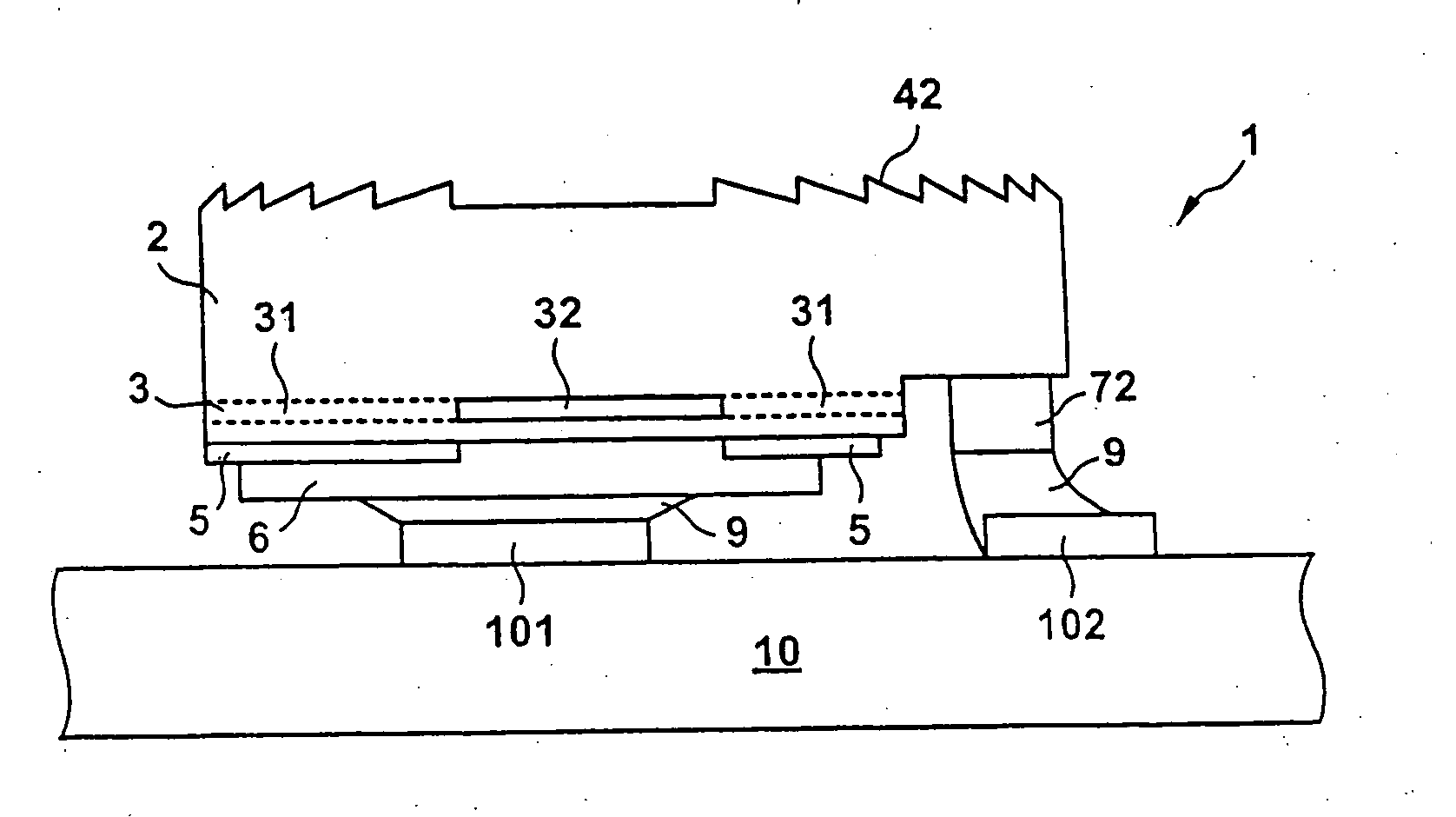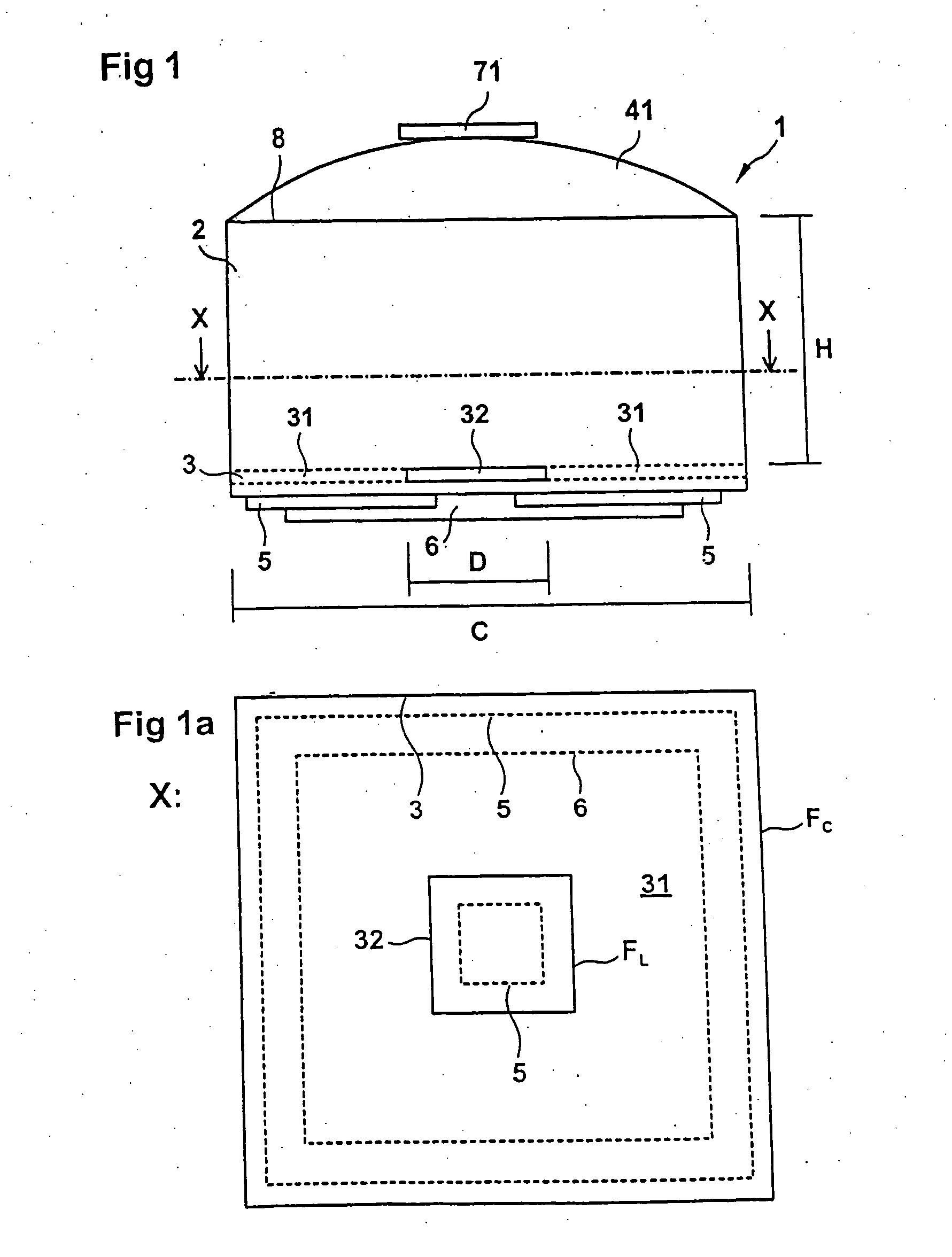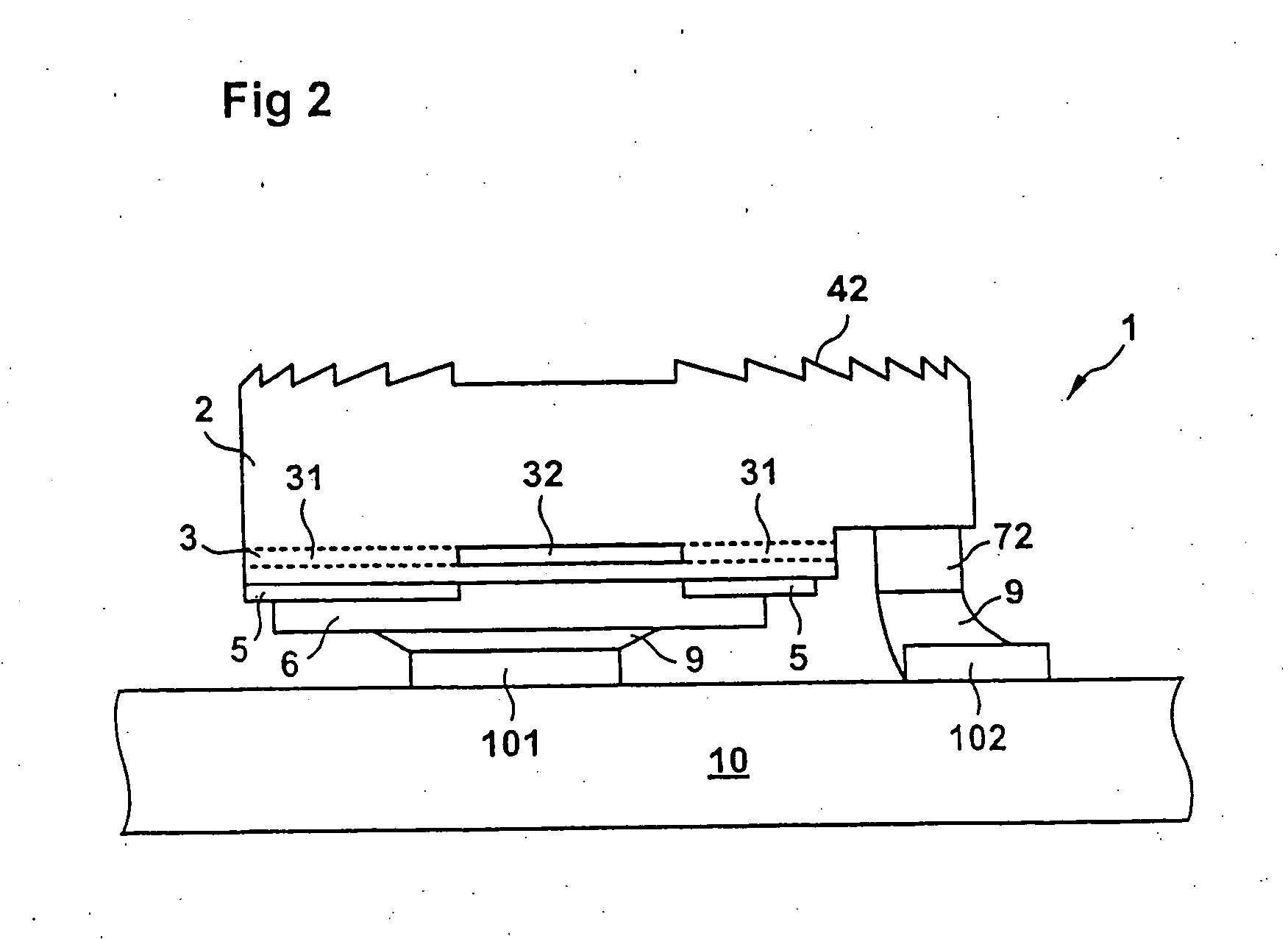High radiance LED chip and a method for producing same
- Summary
- Abstract
- Description
- Claims
- Application Information
AI Technical Summary
Benefits of technology
Problems solved by technology
Method used
Image
Examples
Embodiment Construction
[0047] The light-emitting region 32 of active layer 3 is limited and defined with respect to size and shape by masking of the insulating layer 5. The shape of the electrical insulation makes it possible for power supply 6, which is realized areally on the bottom side of light-emitting semiconductor component 1 disposed opposite light exit surface 8, to contact the chip or the active layer at those locations above which the light-emitting region 32 is situated. In the example, the material used for the insulating layer is an oxide layer [sic]. The power supply 6 can in this case be realized by means of metal deposited areally over the insulating layer 5. Thus, no current flows through the regions 31 of active layer 3 not intended for emission, and consequently no emission of light takes place in these regions. The second current entry is effected by means of first power supply 71, which is realized on the electrically conductive lens 41 in the form of an electrical contact (“pad”) an...
PUM
 Login to View More
Login to View More Abstract
Description
Claims
Application Information
 Login to View More
Login to View More - R&D
- Intellectual Property
- Life Sciences
- Materials
- Tech Scout
- Unparalleled Data Quality
- Higher Quality Content
- 60% Fewer Hallucinations
Browse by: Latest US Patents, China's latest patents, Technical Efficacy Thesaurus, Application Domain, Technology Topic, Popular Technical Reports.
© 2025 PatSnap. All rights reserved.Legal|Privacy policy|Modern Slavery Act Transparency Statement|Sitemap|About US| Contact US: help@patsnap.com



